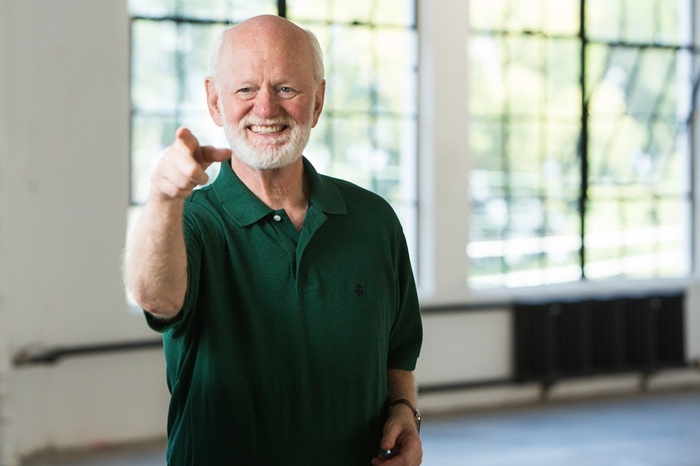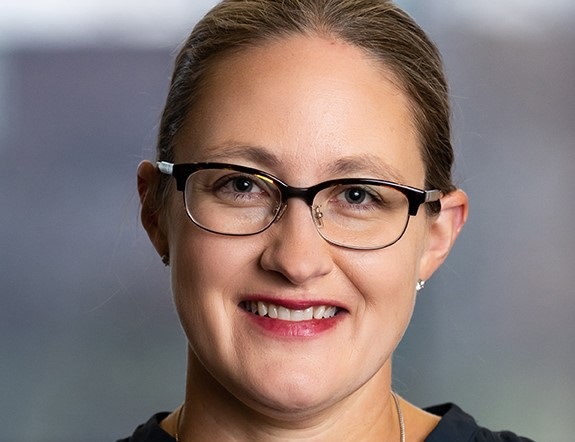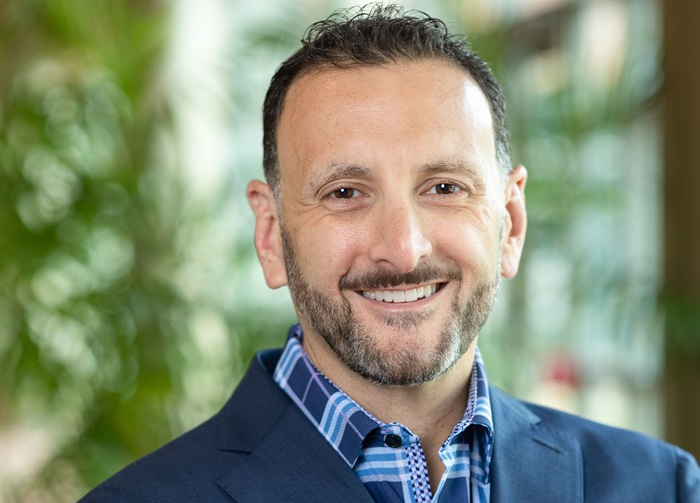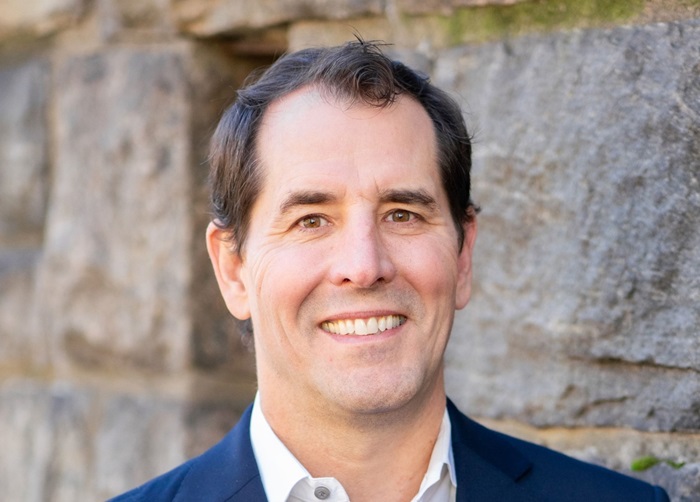Family-First Leadership: Conversations with Penny Pennington
By Chris Benguhe, RaeAnne Marsh and Elaine Pofeldt | February 20, 2025 10:49 am
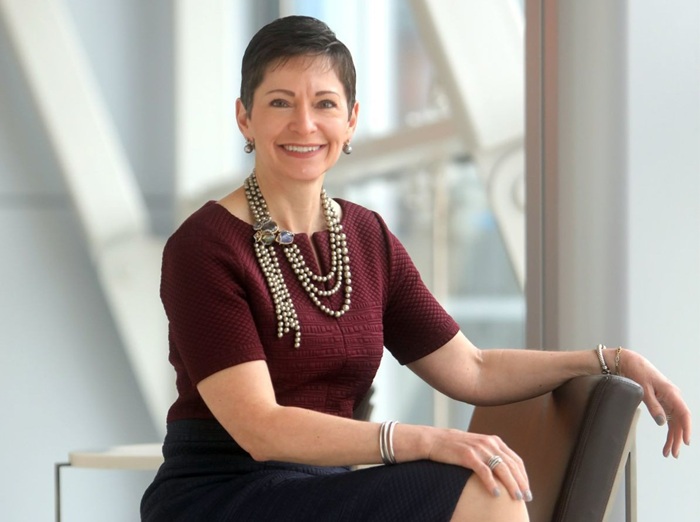
Chris Benguhe, founder of the Dave Alexander Center for Social Capital, dives into the world of people-centric finance with the managing partner of Edward Jones and a study that redefines success in financial services.
[From the Insider vault: a look back at an interview with Penny Pennington during the pandemic.]
Chris Benguhe: I’m excited to be talking to you. I don’t know how much you know about our social capital section. It’s a new section. We’ve been doing it for about a year, and we’re going to have our first Top 100 next month, of course, which you’ll be included in since we honored you this year and we were very happy to honor you. I always like to explain a little bit about it because it is so new and so different, and so if you would give me a few minutes, I’d love to give you a little bit of an idea of what it is that we do and why we honored you.
So, I used to be a reporter for years for People Magazine and for the tabloids, and I always say it was the greatest job I ever hated because I interviewed a lot of people who really weren’t very nice — they pretend to be very nice, but most celebrities are not the nicest people in the world.
And I eventually just said, “I’ve had enough of this,” and I left, and I started writing books about everyday people going across the country, and I really became reinvigorated and my belief in humanity became reinvigorated.
Penny Pennington: Oh. Oh, wow. Yeah.
Chris: Yes. Then I had an interesting thing happen. I had some business leaders ask me if I would help them write their books. I had written many books, and I knew these people through someone else. They said, “Hey, can you help me write a book?”
I said, “Well, I don’t normally do that, but sure.” One thing led to another. I loved helping them first of all, but beyond that, I started learning about business and business leaders in a way that I never knew before.
Penny: Yeah.
Chris: Unfortunately, a lot of journalists have a very negative view of business leaders and of business in America, and it really is unfortunate. As I came to learn, so many of these business leaders were incredibly altruistic people, incredibly smart people, incredibly caring people. What they were doing to create jobs and to create opportunities and to help their employees and their customers was so incredible and wasn’t being talked about really in total. You would see the occasional article about something they might do, but I said, “Wait a second. Maybe there needs to be a section, maybe there needs to be an honor that actually reaches out and finds CEOs who really love and respect people.”
Penny: Mm-hmm. Human-centered, yeah.
Chris: Exactly. What a novel concept, right? So, we have all these lists: the most environmental leaders, leaders that are most about diversity, leaders that are most about this and that. That’s all great. That stuff’s important, obviously, but at some point you kind of miss the point, I think, of humanity and human beings.
I’m a student of history and philosophy, and I read a lot about Adam Smith when I was younger. He writes about the idea of capitalism at its core being about wanting to help your fellow man and to serve your fellow man. I said, “Wow, if that’s true, this is important, and we need to find those CEOs who want to serve their fellow man.”
So, that was kind of the origin of this whole thing. Then we set out to do this, and what we found was extraordinary because we found some of those amazing and dynamic CEOs ever. At the heart of what they’re doing is this great respect for humanity and human beings and the people they serve.
Therein is why we honored you. We had a feature that we did on family and CEOs who respect the family and in their programs and just in the way they do their business. We wrote this very interesting lead into that because, actually, when you read Karl Marx, he talks about how the family must be destroyed for communism to work.
Penny: Yeah. Yeah. Yeah.
Chris: It’s fascinating, right? He actually says that the family is one of the core foundations of capitalism.
Penny: Yeah.
Chris: When I read that — I hadn’t read that in years, and I was reminded of it — I went, “Wow. Oh, wow.”
Penny: That puts a lot of things together it, doesn’t it?
Chris: It really, really does. We were really excited about that article and that feature. Then, we found these companies that really were making an effort to say, “Hey, we don’t want you to work so hard that you can’t have a family life. We don’t want you to have to put all the concerns of your family aside for work. We want it to be integrated. We want to help your family while you’re working for us,” you know?
That’s when we found you. We said, “Wow, this is a company that’s really trying to do the right thing and trying to help its employees almost in a small company kind of a way that sometimes big corporations forget.” That’s the big picture of why we honored you. First of all, we just thank you for what you’re doing.
Penny: No. It’s a privilege and a pleasure, thank you. Thanks for noting it and noting that it’s important. It’s important to business, it’s important to the well-being of communities and society. It’s what continues to make us relevant.
Chris: You seem to have some resonance when I was talking about this and the value of family. I would love you to just give me your thoughts on the value of family and why you think it’s important so much, and why you think it’s so important for companies to respect that.
Penny: Right. Well, family is so tied to an individual’s well-being. I’m happy when my family is happy and when they’re healthy and their well-being is in place and they’re thriving, I’m able to do two things: I’m able to come to work better. That’s thing one. I’m not worried about them. My emotions can go to being the best that I can be at work. I’ve found in my own personal and professional life that when I’m at my best and my purpose-driven work that I do at Edward Jones, when I go home to my family, I’m teaching them values that are really, really important to the rest of their lives.
My children — I have two adult daughters now — and my children both say, “It was so important for me to see you doing something that you loved, that was making a difference for other people, and that showed us that that’s the sort of thing that we should want to do, that that makes for a healthy life.”
That virtuous circle of: We serve families. We’ve served generations of families for 100 years as Edward Jones, to help them have possibilities in their own lives that they might not have if Edward Jones wasn’t there. Actually serving a family in multiple generations is fundamental to who we are and, frankly, fundamental to our ongoing success for another 100 years.
Then, the families of our colleagues: We call this an Edward Jones family. We really mean that. We have 50,000 people who come to work here every day, and if they can bring their very best to the work that we do to serve other families, we find joy and success in helping families find joy and success. The ripple of that across our Edward Jones family is pretty broad.
As an example, we have billions of dollars in our own 401k savings plan that we help our Edward Jones family save for their futures. You know that old saw, “Cobblers’ children have no shoes?”
Chris: Right, right.
Penny: We can’t be that.
Chris: Yeah, sure.
Penny: We’re a firm that helps people financially plan for their futures, so we help our colleagues do that. We help them know that their families matter; that time spent with their families, and the things that they’re passionate about in their communities as well, is going to fire up their lives, make them even more purpose-driven. Have them — this is really important — have them see Edward Jones as a preferred employer. Like, “I want to go work there because they care about me, but they also care about my family.”
What we’re seeing in the environment — especially where we are, where the workforce has so many choices for where they go to work — our most talented people have so many choices for where they work and how they work, especially in a hybrid environment now, that providing the kind of environment that fosters the complete well-being of that family and enables them to unleash their talents and gifts, that makes us a better place. It makes us a better place for our clients, for our colleagues and for the communities where we serve. That’s why we think it’s important.
Chris: If there can be any bright spot from COVID, which is hard to find, is the idea that employers are maybe a little more aware of how important it is to do that. Because it’s a little harder now to get people to … There are people who didn’t want to come back to work. There are people who didn’t want to go back to the office, obviously. But the value of people and the importance of those employees, I think, has been realized more than ever. But you guys have always been doing this, and I was really intrigued by some of these things that you’ve done. I think some of these you had to curtail for a while because of COVID, but there were things that you guys had done — recreational activities, baseball game tickets, overnight family retreats — and are those things that you’re bringing back or going to bring back?
Penny: Oh, absolutely. We absolutely will. We can’t wait to bring them back, Chris. We want to bring them back. Well, we will bring them back safely.
Chris: Mm-hmm.
Penny: What we’ve had to do is move to technology in ways to keep us connected. Where regional meetings would have included families in person, what we’ve done during our summer regional meeting period is to do that through technology. Three hundred fourteen regions across North America are getting together on Zoom screens, and their families are in the room.
Chris: Oh, wow.
Penny: They’re professional development opportunities but there are also entertainment opportunities and connection opportunities and funny games where the kids are involved in service projects that we’re doing on Zoom screens. At our recognition conferences for all of our constituents, our best financial advisors and BOAs and associates, we’re providing opportunities to have name- brand entertainers come and be part of our Zoom screen.
Chris: Wow.
Penny: They’re doing a stadium concert just for us. We had one very recently, there were about 7,000 of us on Zoom screens but, because families were there, we think that there were around 15 or 18 thousand people watching Thomas Rhett talk about …
Chris: Oh, boy.
Penny: … yeah, and his purpose and what fires him up. We look for every opportunity to really dial up that connection, that family connection — the Edward Jones family and our home team family as well.
Chris: Oh, that sounds so cool. I love that. You must be personally, as well as professionally, very proud of that commitment to family and that commitment to the well-being of your employees. Have you ever heard any stories or anecdotes, things that have come through to your desk, that just made you say, “Wow, I’m so glad we did that”? Or “Wow, I’m so glad we have that relationship with our employees”? Do you ever get any of those or have any of those off the top of your …
Penny: All the time. I’ll tell you one. A female financial advisor, really successful and significant to her clients. She stopped me at a meeting and she said, “Penny, I just want you to know that I have a special needs daughter, and there is nowhere else that I could have worked and worked successfully than Edward Jones and given my daughter the opportunity to thrive as I have. Edward Jones enabled me to do that.” Because of our policies around healthcare insurance, but also because of how we treated her and her devotion to her daughter, the flexibility that she had in her branch, the flexibility she had as a leader in her region. It comes from our DNA, it’s because the people around her saw her needing to help her daughter thrive. We look for every opportunity to do that. That’s one.
I’ll give you another. The reason that I share this with you, Chris, is the definition of family is also changing. Family that comes directly through bloodlines is one way to think about family, but many of us choose the family that we want to care for and be devoted to. One of our financial advisors in Ohio … As a result of COVID, we stopped our family travel programs and instead we gave people gift cards. We gave them significant gift cards in order to vacation with their family.
I got a call from Chris and he said, “I want to show you the family that I’ve used my gift card to vacation with.” It’s two young girls from Africa, both of whom have suffered incredible trauma and physical trauma as well as emotional, needing to come to the United States for a year’s worth of surgery. They have brought those two young girls and their mother. They are learning from each other a different language, a different way of being, different foods, different culture. This is now their family. The way that Edward Jones handled the pivot that we had to make associated with some things that are so deeply ingrained in what we do to recognize folks, that enabled his family to be renewed in a really, really remarkable way.
Chris: Wow, I love both those stories and it really goes to the heart of so many of the programs and so many of the things that you guys are doing, and that flexible scheduling and everything else that allows people to be with their families and do what they need. That extended family definition, that’s so important as well. You really do embody that idea of that extended family being your family as well, a family of Edward Jones. That’s a very neat concept and idea.
I want to take it back to what we started with, then. All of this really gets to that idea of a company not just being a place that trades work for money, but really being a home in a lot of ways, a home away from home, and a community. That idea that we talked about, that capitalism is about people helping each other, have you thought about this before in your career? That definition of a good business being something that really helps its employees, helps its customers, helps serve mankind — is this something that you’ve thought about before coming to Edward Jones and you’ve maybe seen both sides of?
Penny: Mm, mm-hmm, sure. Well, you mentioned Adam Smith a little while ago. The growing understanding that business has as a place to do work and call home, a place to generate innovation and solutions to thorny problems — I think that business’s place in that has been growing over the past few decades, growing and changing. Milton Friedman, why a business exists — that debate is a very active debate. We are acolytes of Peter Drucker, and Peter Drucker recognized that businesses are made up of human beings and that their chief goal is to create a customer based on understanding what people value.
Businesses … I believe very strongly that business gets its, I call it “license to operate.” I don’t mean governmental license; I mean its right to operate. We get that from consumers when they buy stuff from us. When they buy stuff from us, it’s because they value what they’re receiving. That gives us resources to affirm what value they’re receiving and to continue to innovate and grow in order to provide them value. That circle has always been in place.
What I find intriguing about where we are right now, this moment in time — and I hope this moment lasts for a long, long time — but what’s intriguing about it is that the definition of value is changing. Where value two decades ago might’ve been lowest cost, prettiest product, easiest to get a hold of, it was sort of a transactional view of value. Value is morphing to be more relational. Like, “It’s valuable if it connects with my values. I want the brands that I buy from to reflect who I am and what’s important to me.” What we are seeing today, and the Trust Edelman Barometer: Lots of research right now is showing that consumers see value from companies that are treating their clients, their consumers, treating their colleagues well.
During the pandemic, one of the most interesting pieces of research that I saw was consumers were looking at how companies were treating their employees to know how they thought about them. When we say, “Our purpose is to partner for positive impact, to improve the lives of our clients, our colleagues, and together to better our communities and society,” that’s valuable to people today. If businesses are looking at what consumers value and orienting innovation and growth to that value, that’s where our license to operate comes from. Businesses have vast resources, really smart people, the incentive to stay in business, to create value for decades to come. This now becomes the circle of impact.
I think that impact of partnership, governmental, non-governmental, regulatory, the full system of stakeholders to solve some thorny problems, I think the power is there and the opportunity is there. We saw the pharmaceuticals come together in an interesting and unprecedented way in the past year. I think that’s an example of business making a difference. Good for business, business for good.
Chris: I love that because it leads up to one of my last questions that I’d love to ask you. Juxtapose that, if you would, in a real and relevant way. How do you see companies, and maybe Edward Jones in particular, making a significant difference? Specifically, if you have any thoughts and ideas in our current world, in our current country, in our current situation (next five years or so). Are there ways that you see companies and business really being able to make an impact in particular, maybe in ways they haven’t yet but they’re moving towards?
Penny: Absolutely. I’ll point to a couple. First, one of the ways that we have discovered what’s really valuable to investors and consumers is we asked them.
Chris: Mm, mm-hmm.
Penny: We did a huge study last year called “The Age Wave Survey of Pre-Retirees and Retirees.” We asked them what was important to them. It fell into four categories: health, family, purpose and finances.
Chris: Hmm.
Penny: That gives us the rails to run on, to recognize what is important to them, what they want to be advised about …
Chris: Yeah.
Penny: … but also the kinds of things that, as it relates to our purpose, we ought to be partnering to help with. When we think about health, for example, Alzheimer’s disease is a scourge. It robs people of their families, of their memories and of their money, all things that we help people build durable plans for. There is not a survivor of Alzheimer’s.
Chris: Yeah.
Penny: There is no cure. We are a presenting national sponsor for the Alzheimer’s Walks Across America. At the end of the next five years, we will have raised and contributed $50 million …
Chris: Oh, wow.
Penny: … to researching an end to Alzheimer’s.
I’ll tell you another one: financial literacy, helping people be more financially resilient. You think of a wealth management company like Edward Jones, that’s what we do in our business every day. Helping more people have access to tools earlier in their lives, perhaps in places where they don’t necessarily see a company like Edward Jones being for them. Where we are there in our communities, we will have helped people with financial literacy, 1 million students over the next three years, discover what it means to marshal their own resources, to make plans for the future so that they can have opportunities in their own lives.
Now, think about that virtuous circle again. That’s great for a wealth management business. They may not be our clients right now but, as our communities become more resilient, as wealth equity becomes a real thing and more spread across our economy, that means more people need our services. They need the advice and guidance that we can give. It is good and right for us to help people with their financial resilience inside of our business, as well as in our communities, through our schools, through nonprofit organizations that we work with.
Chris: God, I love both of those on so many levels, especially the origins were so fascinating — doing that study and whatnot, and getting those responses and hearing that. It’s so indicative of a significant change, I think, in values in general and where people are. But you being so attuned to that and cuing in on the Alzheimer’s especially, but financial literacy, it’s a no-brainer, right, when you think about it.
Penny: Yeah.
Chris: Yet it’s something that a lot of financial companies have not worked on or thought about working on until very recently, but it’s coming from that even perspective. Absolutely love that. Thank you so much for taking this time.
Penny: Thank you.
Chris: I know you need to get going, and I want to give you that time, but I really appreciate the time you’ve taken. I’m going to ask you one last question. Do you like to write at all?
Penny: I love to write. Yeah.
Chris: Oh, I love hearing that. Okay …
Penny: Yeah.
Chris: … because one of the things that we’re doing that’s very unique in this section is we’re not just looking to interview people one time and then say goodbye. We really like to have a relationship with many of our CEOs.
Penny: Love that.
Chris: Yeah, and we’re inviting them to write their own articles …
Penny: Oh, yeah.
Chris: … on things that are important to them. So often, we journalists go in and interview and talk about what we want to talk about, but you guys are the guys who have devoted your lives to this and have not just the body of knowledge, but the intent and the motivation that we could never even think of. We’d really like to capitalize on that and maybe have you write a few articles if you’re open to it.
Penny: Yeah. Yeah, I’d love to. Love to.
Chris: Okay, great.
Penny: Hey, as I was reading your bio, I thought of you. I’m reading a book right now called Heroic Leadership by Chris Lowney, and it is the story of a 450-year-old, very successful, innovative company called the Jesuit Order. It’s fascinating. The Jesuit Order was built on four things: self-awareness, ingenuity, love and heroism. And it’s …
Chris: Yes. Yes.
Penny: … just a fantastic book. Given some of your background, I thought you might be interested in that book.
Chris: Thank you. I appreciate that. I always say the Jesuits ruined me for life, so …
Penny: You may have firsthand knowledge.
Chris: Yeah.
Penny: I hope it was from love.
Chris: Absolutely. Absolutely.
Click here to see our Social Capital Revolution podcasts of interviews with Penny Pennington and other Social Capital business leaders.

